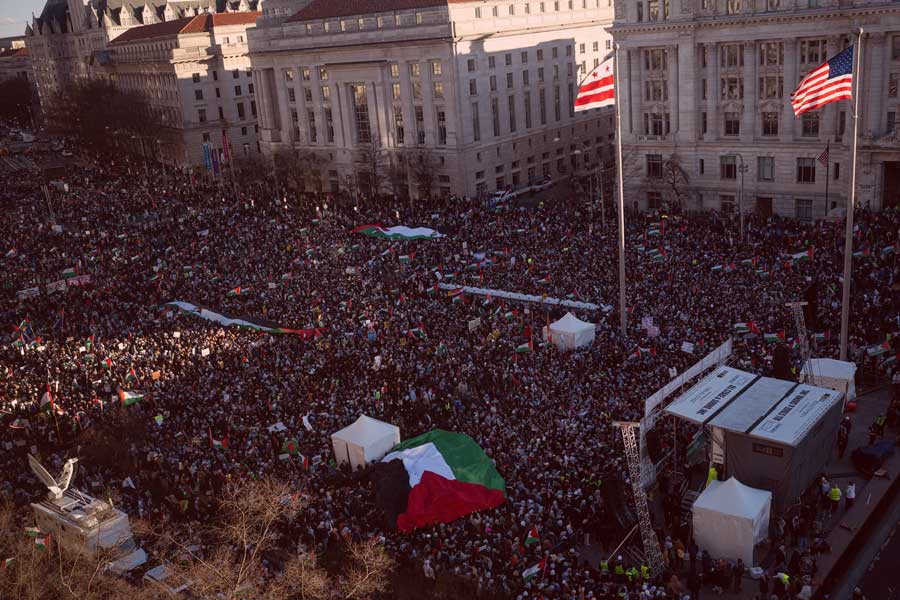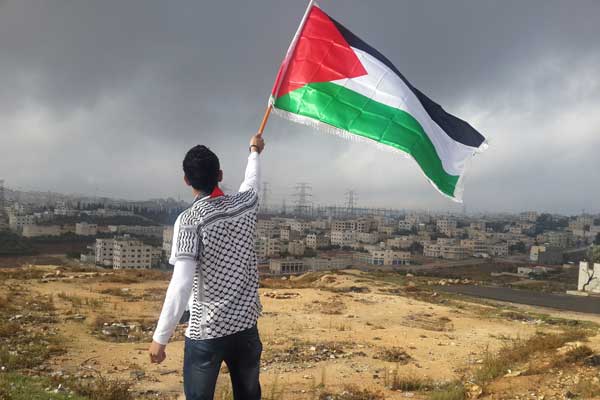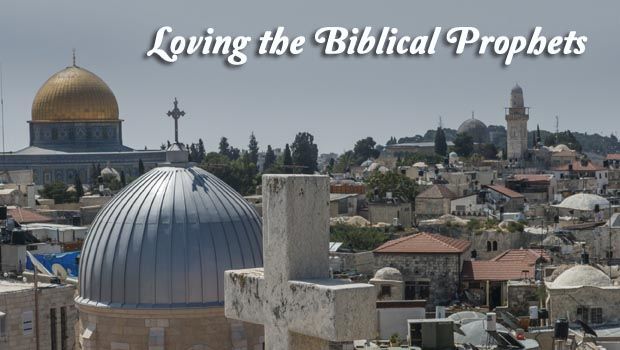Politics and journalism have been, for a long time, two of my greatest passions in life; and Palestine has always been the driving force, the soul of my unwavering commitment to truth and justice. The first thing we are taught in journalism is that it’s a form of storytelling, sharing narratives and perspectives, the pursuit of understanding the complex terrain of reality. As a journalist you are given the duty of upholding truth and an obligation to present facts. The principle of positing information objectively is drilled into our brains. Journalism serves as a watchdog, taking on the responsibility of truth-telling, of shedding light on injustices and abuses of power. This is in stark contrast to politics, which is so often a realpolitik that covets power, not ideals, and thus falls short of a moral commitment to humanity and an empathy that is willing to look at suffering and seek its relief.
For years, I’ve dedicated myself to raising awareness, my own first and then others’, through publishing articles, researching hours upon hours, writing academic papers, and doing projects on Palestine. While, simultaneously, I have attended events, protests, and seminars to dig deep into the core of that intransigent issue. I have read works of Edward Said and Mahmoud Darwish, two souls who shared the struggle to free Palestinians, their advocacy through action, writing, and storytelling. But in the end, mine has been a small attempt to use logic and reason in trying to make sense of the decades of illegal occupation and the politics encumbering the region.
I was willing to fall into the rabbit hole where politics, geopolitical agendas and exploitation, propaganda, deceit, and human failing all swirl in a disorderly, life-defying maelstrom. But upon reflection, the series of events that unfolded in October forever changed my trajectory in life and my understanding of humanity, mortality, and journalism.
One October evening, I marched on the streets of Cambridge for hours, demanding first a ceasefire and then justice for Israel’s brutal attacks on Gaza. Marching on the same streets years ago, I was among those demanding justice for the attacks on Sheikh Jarrah. My keffiyeh, wrapped around my neck, was adorned with a picture of Al-Aqsa and “Free Palestine” written across the bottom in Arabic. I joined hundreds upon hundreds of protesters, all flushed with anger and adrenaline. As always, I believed it was my duty to stand up, to be a voice for those made mute by censoring or censure or oppression.
The trajectory of my life changed when, twenty-four hours later, I received news that my grandfather had suddenly passed away. Everything I took for granted shattered. Everything around me blurred as I was forced to grapple with a reality that I had no choice but to face. The funeral home was where I said my final goodbye. He looked at peace, asleep, the room becoming a sanctuary, for moments transcending the boundaries of life and death. The person who raised me to be strong and resilient laid motionless in front of me. And then, moments later, the world outside felt distant, and for the first time in my life I felt powerless.
I stood and watched him being buried. I helped pat the fresh dirt on his grave, gently placing his favorite roses down. I sat and played with the soil, and as my phone buzzed with messages of condolence, I was also receiving notifications of breaking news in Gaza. The parallels of watching reports on my phone of entire families being obliterated while living my own personal encounter with death drew me into a spiral of mind-boggle and desolation. I wanted to block all of it out, I wanted to look away as if that might fix things. These two experiences, though quite distinct and incomparable, melded into immense grief for me. In the weeks following my grandfather’s passing, I struggled.
I returned to the city to find people that I had known as friends being targeted and doxed. Campuses all around were sending nearly-identical emails, dismissing claims of the genocide taking place in Gaza. The same politics and journalism classes in which I had been taught ethics, brushed all the obvious evidence of injustice under the rug. For the first time, everything that I had been accustomed to according to a political framework of social justice and advocacy for those who are marginalized, discriminated against or oppressed — all of that came crumbling down. Every protest I attended, I heard the same stories of entire families being wiped out, of children being brutally murdered, and hospitals being attacked. I thought of my grandfather often, and of thousands like him. The juxtaposition of dealing with intimate personal sorrow while witnessing the large-scale horror of genocide became a driving force in my deepening commitment to advocacy for positive social and political change. Over the course of two months, I began collecting videos of protests and rallies, creating video packages, researching public opinion, analyzing and writing about the psychopathy of ethnic cleansing and genocide, and speaking at multiple protests.
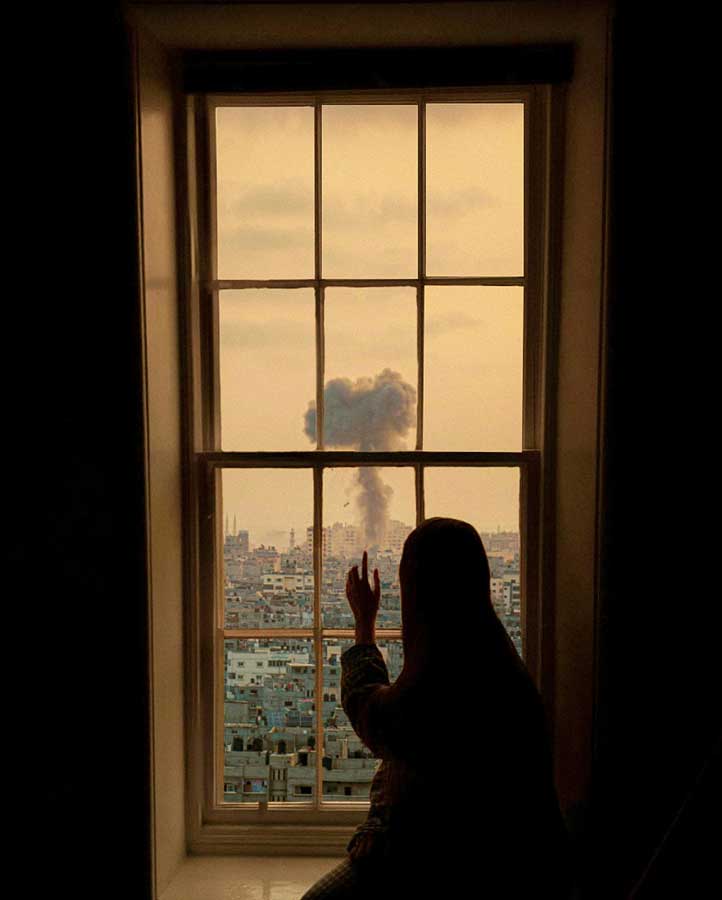 Seeing what Palestinians are going through, right there on the screens in front of our eyes, makes commitment to social justice, which can be for many people an intellectual exercise, become the reality it is — life’s challenge to feel the suffering of others, to empathize in ways that mobilize us intellectually, spiritually, emotionally, and morally. My voice is just a mere fraction of the megaphonic call to action to stop the destruction and death in Gaza.
Seeing what Palestinians are going through, right there on the screens in front of our eyes, makes commitment to social justice, which can be for many people an intellectual exercise, become the reality it is — life’s challenge to feel the suffering of others, to empathize in ways that mobilize us intellectually, spiritually, emotionally, and morally. My voice is just a mere fraction of the megaphonic call to action to stop the destruction and death in Gaza.
To grasp Palestinian resistance, that it will not die, one must understand grief. This was the first time in my life I felt concomitant resistance in the form of refusing to surrender to despair, in a willingness to face death and defy its pull to hopelessness and the dissolution of personal autonomy and power. This is nothing less than a total commitment to keep going, to find a solution in undying resistance to oppression.
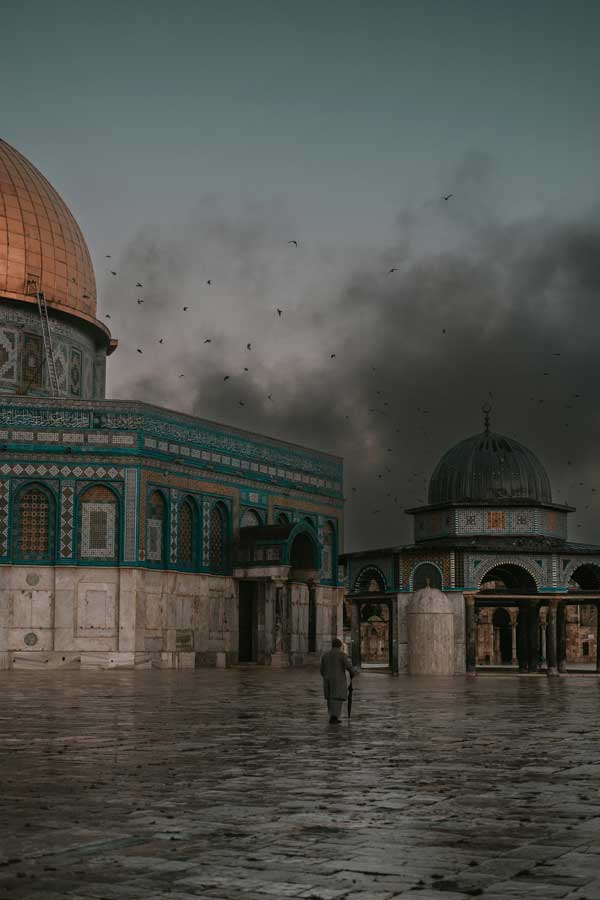 The struggles of the Palestinians have been obscured for decades by carefully curated narratives in the media. Headlines often reduce the suffering and deaths to numbers and statistics, stripping away their identities. Reducing individuals to these statistics perpetuates a cycle of indifference. Now, however, we see journalists on the ground in Gaza who are dismantling these decade-old narratives. At its core, we have all been forced to bear witness to the atrocities taking place. What we see is a compelling display of Palestinian strength and resilience. No class, no academic project, no intellectual analysis or reflection has shown me, as the Palestinians have, the depth of the human soul and its refusal to capitulate to death and destruction.
The struggles of the Palestinians have been obscured for decades by carefully curated narratives in the media. Headlines often reduce the suffering and deaths to numbers and statistics, stripping away their identities. Reducing individuals to these statistics perpetuates a cycle of indifference. Now, however, we see journalists on the ground in Gaza who are dismantling these decade-old narratives. At its core, we have all been forced to bear witness to the atrocities taking place. What we see is a compelling display of Palestinian strength and resilience. No class, no academic project, no intellectual analysis or reflection has shown me, as the Palestinians have, the depth of the human soul and its refusal to capitulate to death and destruction.
Now, during every protest I think of my grandfather. I don’t think of statistics or politics or propaganda. I think of people like him. And so, I speak of him often, in hopes that as long as I speak my truth, the memory of his life’s principles and virtues will never die. Political leaders and governments too easily create “us vs them” as a cover for their destructive policies, a way of abolishing the meaning and value of individual lives. But in journalism, truth can prevail, it must be the guardian of veracity. Storytelling is our lifeblood, and it unfailingly points towards justice and resilience in the face of oppression. The Palestinian story is a living testament to this truth. In solidarity always.


